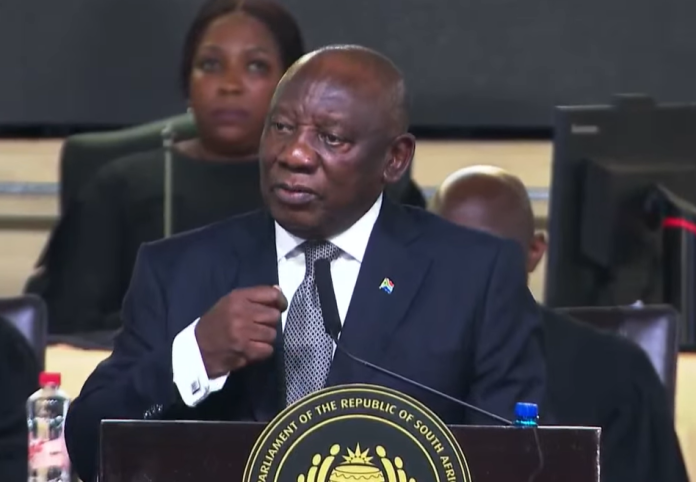President Cyril Ramaphosa says South Africa’s infrastructure development is gathering pace, with significant investments from both the public and private sectors driving economic growth and job creation.
In his weekly newsletter issued on Monday, Ramaphosa quoted a recent report by Nedbank highlighting that new infrastructure projects announced in 2023 amounted to R445 billion, more than double the previous year’s total and marking the largest fixed investment in infrastructure since 2021.
The bulk of this investment—over 78%—came from the government and state-owned enterprises, according to Statistics South Africa.
Capital expenditure by national, provincial, and local governments, as well as state-owned enterprises, continues to rise.
Ramaphosa has also acknowledged the private sector’s investment, which has improved significantly in 2024.
“The private sector is lagging behind the state on infrastructure development spend. However private sector entities announced investment plans in 2024 with a total value of R95 billion. These included an R18 billion mixed-use development in Gauteng, a R4 billion investment by Volkswagen to upgrade its Kariega facility in the Eastern Cape and a new private university for the Western Cape.”
During the President’s recent State of the Nation Address and subsequent debate, the government outlined several ongoing infrastructure projects across various sectors, including water and sanitation, human settlements, renewable energy, road rehabilitation, and healthcare facility upgrades.
ALSO READ: SONA 2025: South Africa To Be Turned Into “Construction Site”
Ramaphosa says Infrastructure South Africa (ISA), established under the sixth administration, has been instrumental in advancing strategic infrastructure projects (SIPs).
Currently, 34 out of 50 SIPs are in the implementation phase, valued at R281 billion. Additionally, a pipeline of catalytic projects worth R21 billion is expected to break ground this year. To expedite construction, ISA has launched a R180 million project preparation fund to support infrastructure projects across the government.
He says the government has also revised regulations on public-private partnerships to attract private-sector expertise and funding.
The President also highlighted efforts to combat construction-related criminal activity, such as disruptions by so-called ‘construction mafias,’ which he says are being led by the South African Police Service’s Economic Infrastructure Task Teams.
“Last year, stakeholders attending the National Construction Summit on Crime-Free Sites agreed to collaborate to address construction-site disruptions. Some of the measures agreed on included enhanced security measures on sites, community engagement and the development of the emerging construction sector.”
Ramaphosa concluded that the construction sector remains a major driver of employment, recording the highest job growth between the second and third quarters of last year.
“As work continues apace on structural reforms to improve the business operating environment and facilitate investment, our country’s infrastructure build programme will play an increasingly prominent role. We will intensify our efforts to ensure that infrastructure investment by both the state and business drives economic recovery, growth and job creation.”


